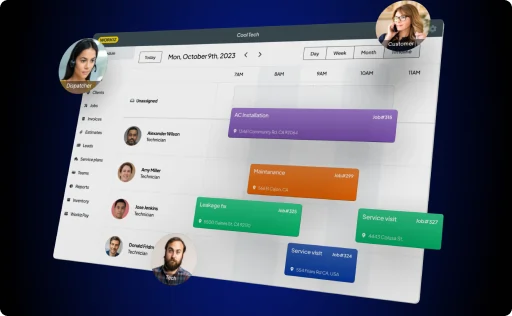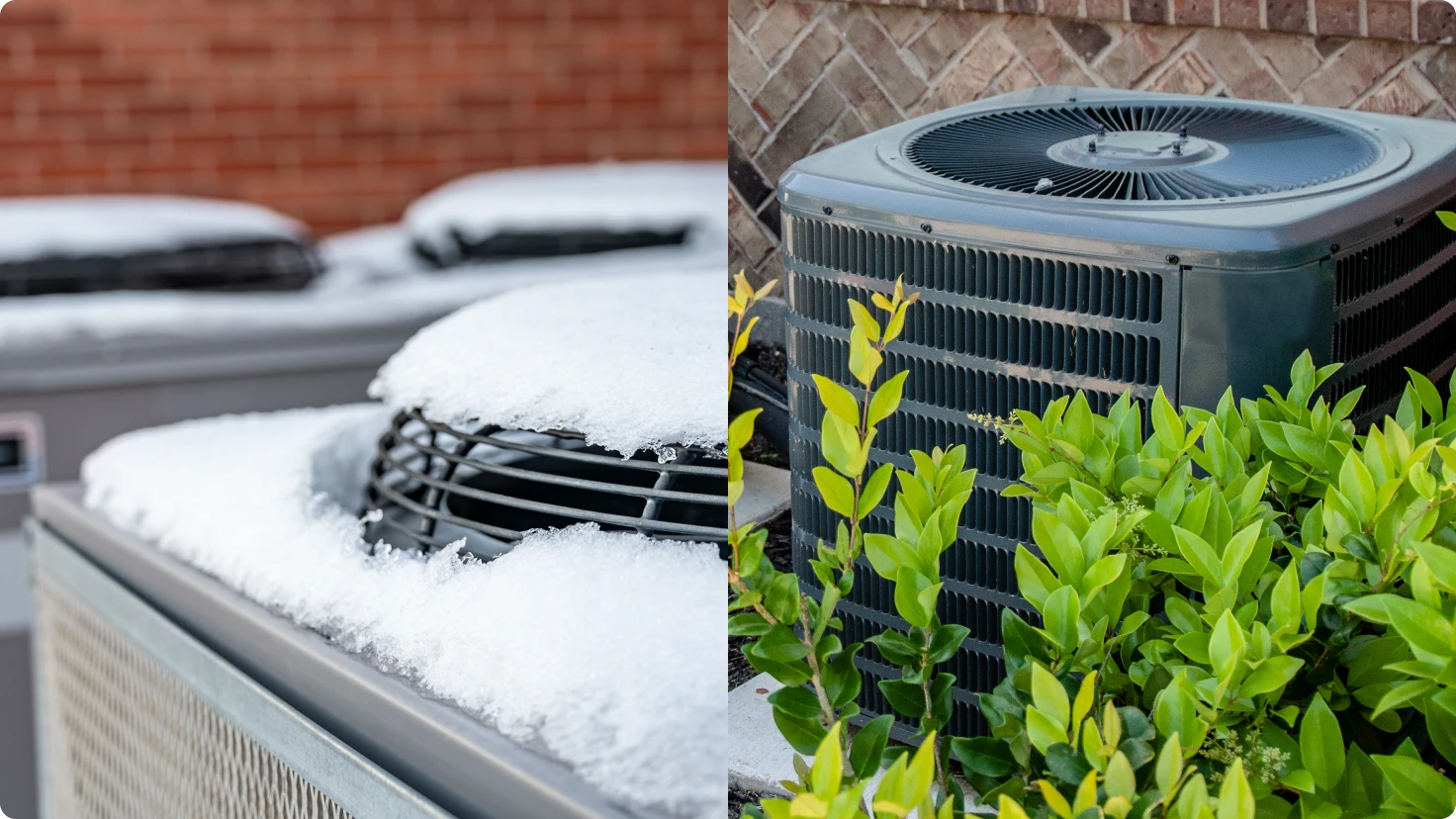Here’s why
The first reason is to reach your target audience more efficiently and faster. Like it or not, you cannot appeal to everyone, even as an HVAC specialist. While some may cater more to residential customers, you may be more inclined toward commercial or industrial customers. Imagine opening your business (for residential customers) in an industrial area…
But that’s not the only reason location is a vital factor for consideration. Operating in a location without enough market demand can lead to financial strain/stress, missed growth opportunities, and (while we may hate to say it) risk of failure.
In this blog, you’ll learn what states are great and what states are not so great for opening an HVAC business. That said, let’s dive right in!
According to various sources, these are the hottest states for HVAC specialists
HVAC technician jobs by state
Income distribution chart
Worst states for HVAC businesses:
The following states were identified as the worst places to set up an HVAC business because they all had some of the lowest average HVAC technician salaries. While there was no specific factor tied to the low rates, it is not necessarily a good thing. The disparity could be tied to negatives like the high cost of living, low demand for HVAC services, or some prevailing economic conditions in those states.
- New Mexico
- Wyoming
- Mississippi
- Arkansas
- Oklahoma
- West Virginia
- Tennessee
- Vermont
- South Dakota
Factors to consider when choosing a state for your HVAC business
Even though you already have a clear idea of what states are tremendous and which you should stay out of, you’d still need to decide on one location. Here are the factors to consider:
Market demand
As discussed earlier, it is vital to consider the level of market demand for your services before setting up your company in any state. To do that, you must analyze some elements, including population growth, housing trends, and commercial development in your field (residential, industrial, or commercial). You should ascertain a growing need for heating, ventilation, and air conditioning services in the area before setting things up.
Competition
Even though a location is among the best, you must ensure you’re not entering a saturated market (especially if you have yet to have a client base). While a saturated market may seem like the ideal choice for any business, it may either drown you out or pose financial strain when you try to advertise or stand out. Instead, opt for underserved areas, as they could offer growth opportunities.
Regulatory environment
Another thing most people may need to learn is that it is crucial to understand state and local regulations governing HVAC businesses. Some locations may require you to apply for specific licenses. In contrast, others may require you to adhere to specific environmental standards. Non-compliance with these regulations could be detrimental to your business’s success or continuity.
Cost of living
Recall when we talked about the possible reasons the worst states existed. High living expenses can negatively affect your business’s success. Therefore, before moving in, evaluate the cost of your operating expenses, the wages of your employees (if you have employees), and your overall business viability.
Business incentives
As the final factor to consider, you must research available business incentives, tax breaks, and support programs the state or local government offers before launching in. This is especially crucial for startups because it can help reduce business costs initially.
The challenges of operating an HVAC business in New Mexico & Wyoming
While almost ten states were on our list, these two have emerged as the two worst states for opening an HVAC business. Here are the challenges specialists are facing in New Mexico and Wyoming.
Financial challenges
It’s not easy to operate an HVAC business single-handedly. There will always be a time when you may need to apply for loans. However, if you’re using it in New Mexico or Wyoming, there’s a bigger chance of meeting with a dead end. This challenge is mainly tied to the state’s economic factors and lending practices, which could significantly impact loan accessibility.
Geography
While Wyoming’s rugged terrain and sparse population density can impact the operational logistics of HVAC businesses, New Mexico faces a different challenge. As a unique state, New Mexico has multiple terrains and climates, which could make it slightly difficult for specialists to travel long distances.
Population spread
In New Mexico, too many people spread in diverse regions (remember that New Mexico has a vast geography). This means it may take a lot of work to target customers efficiently. In Wyoming, the population is less dense and has an extensive spread, posing the same challenge.
Regulatory hurdles: licensing and certification requirements
Every state has different licensing and certification demands (as previously mentioned). Compliance with these requirements is not only beneficial but also necessary as it determines the possibility of the business’ establishment. That said, here are the requirements for each of the best states mentioned above.
District of Columbia
HVAC license is required and can be obtained from the District of Columbia Board of Industrial Trades. Requirements include: Pass mark on examination and experience criteria.
Alaska
HVAC technician license is required. It is issued through the Alaska Department of Commerce, Community, and Economic Development. Technicians must meet experience and examination criteria.
Hawaii
No license is required. However, check with local jurisdictions for specific requirements.
New Jersey
The HVAC license is issued through the New Jersey Division of Consumer Affairs. All technicians applying must provide certifications, insurance, and business information. No examination is needed here.
New York
No state licensing is required for HVAC specialists. However, there are local licensing at the city level, including New York City, Buffalo, and Ithaca. The specific requirements vary by local jurisdiction. They include insurance, certifications, and business details.
California
No HVAC technician license required. Nonetheless, check with local jurisdictions for specific requirements.
Pennsylvania
Technicians do not need any license however, contractors may require licensing. This is done through various boards and it varies based on the type of HVAC service offered.
Montana
No licensing required for HVAC technicians. However, consult local jurisdictions for specific requirements.
Seasonal demand and climate considerations
Besides the regulatory requirements, seasonal demands are a huge factor to consider before choosing any state.
The most common reasons when HVAC services are demanded are spring (with a need for maintenance, repairs, system checks, and system transition from heating to cooling) and winter (with system repairs, emergency services for heating failures, and service checks on furnaces and heat pumps).
Summer is the peak season for technicians, with a high demand for air conditioning installation, repairs, and maintenance. While Fall also requires HVAC services for furnace inspections or heating system tune-ups, it is not the most demanding time of the year.
That said, the following are the climatic considerations that work best for HVAC specialists:
- Places with extreme temperatures (either really hot summers, or very cold winters)
- Places with high humidity levels
- Areas with unpredictable weather patterns like sudden spikes or severe storms.
District of Columbia
The state has two extreme climatic seasons — peak hot summers, and freezing cold winters, which make this state one of the best places with high HVAC service demands.
Alaska
Alaska’s climate is characterized by long, harsh winters with sub-zero temperatures. Therefore, there is a huge demand for heating services and frequent maintenance.
Hawaii
Hawaii falls under the category of places with high humidity. Therefore, there are high demands for air conditioning systems to maintain indoor comfort from the warm temperature.
New Jersey
Similar to the District of Columbia, New Jersey has both hot summers and cold winters. HVAC technicians would need to adapt to the growing fluctuations in the varying climate from distinct seasons.
New York
New York’s another state with both hot summers and very cold winters, which requires reliable air conditioning and heating services (not to mention the requirements for Fall and Spring).
California
Depending on the local region, the state generally has longer summer seasons and hence faces more hot weather. Therefore, there’s a high demand for HVAC air conditioning services in the state. Nonetheless, California also experiences some harsh winter seasons.
Pennsylvania
This is another state with both hot summers and cold winters throughout the year. The fluctuating seasons therefore call for frequent visits from HVAC technicians.
Montana
Similar to Alaska, Montana also experiences more cold temperatures due to the long winter seasons. While summers are mild and short, HVAC technicians are mostly needed for heating services.
Challenges in recruiting skilled and certified HVAC technicians with experience
By now, you have all you need to get started in your chosen state. However, suppose you’re considering recruiting more hands on deck (especially in the new state). In that case, you may face a few challenges. However, it’s best to be aware so that you can work around a solution. Therefore, here are some challenges you may face during recruitment:
Attracting qualified employees
The HVAC industry is a competitive market, so you’d have to do much more than usual to attract and retain a qualified team.
Labor shortage
Despite the popular marketspace, only a few percent of the labor force are skilled and qualified.
Negative perception of young trades
While most of the help you might find will be for young adults, many clients tend to second-guess the experiences of the younger population regarding HVAC, posing another challenge.
Conclusion: tips for success — how to thrive despite the challenges.
Despite the challenges posed above, the following are some things you can do to thrive:
- Craft compelling job descriptions highlighting the benefits of working for the company can help attract top talent.
- Take advantage of online platforms and social media to better advertise your openings.
- Create a solid online presence and invest in employee training and development.
- Build relationships within the industry to facilitate networking opportunities. While this can lead to referrals for potential hires, it’s also great for your business.
Speaking of relationships, it is also advisable to use HVAC management software to help streamline your operations and improve your business efficiency. When people are aware of the quality of your work, they’ll come around you. For those who need help deciding what management tool to use, try Workiz. As a trusted service with over 120k users, the software is guaranteed to bring you positive results in only a short time frame.
Ultimately, by carefully evaluating the above mentioned factors and implementing strategic solutions, you can position your HVAC business for success in any state.










